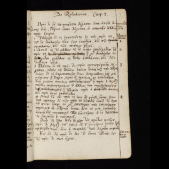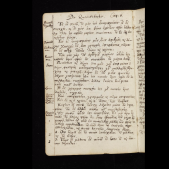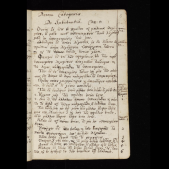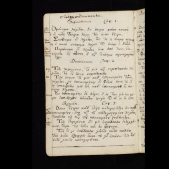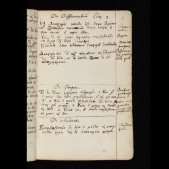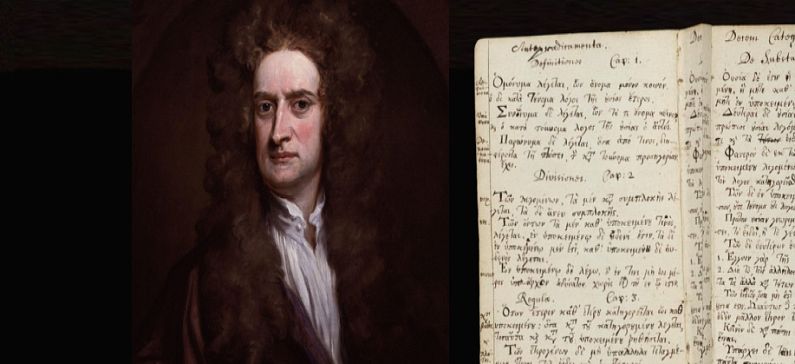
Isaac Newton’s transcripts in Greek
The notebooks in which Sir Isaac Newton worked out the theories on which much classical science is based have been put online by Cambridge University. More than 4,000 pages have been scanned, including his annotated copy of Principia Mathematica, containing Newton’s laws of motion and gravity.
Newton wrote mainly in Latin and Greek, the scientific language of his time, and was reluctant to publish.
The papers mark the launch of the Cambridge Digital Library project to digitise its collections. As well as Principia and Newton’s college notebooks, the Newton Papers section of the online library contains his “Waste Book”.
The large notebook was inherited from his stepfather, and scholars believe it helped Newton to make significant breakthroughs in the field of calculus.
Newton had to be persuaded by fellow scientists Halley and Hooke to publish his works on gravity, mechanics, calculus and optics. Several of the manuscripts in the collection contain the handwritten line “not fit to be printed”, scrawled by Thomas Pellet, a fellow of the Royal Society.
He had been asked to go through Newton’s papers after his death and decide which ones should and should not be published.
The university had to undertake conservation work on some of the manuscripts, which were considered too fragile to be scanned.
Grant Young, digitisation manager at the university library said Newton’s works were chosen for the site because they were “perhaps some of the most important papers and documents in the history of science”.
“Anyone, wherever they are, can see at the click of a mouse how Newton worked and how he went about developing his theories and experiments,” he said.
“Before today, anyone who wanted to see these things had to come to Cambridge.
“Now we’re bringing Cambridge University Library to the world.”
A further 8,000 pages of Newton’s works are to be added over the next few months.
Other works which will become part of the digital library include the university’s Charles Darwin collection.
The digital library project was started in 2010 with a grant from the Polonsky Foundation, a charity that supports international educational projects.

